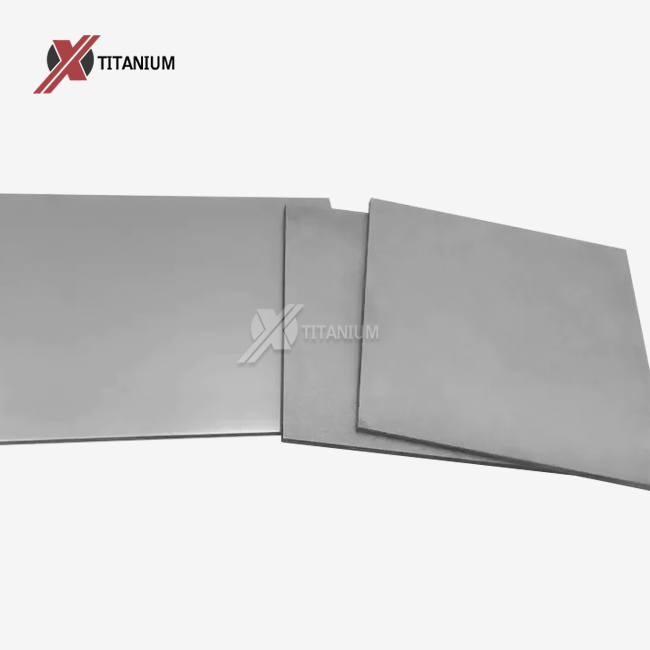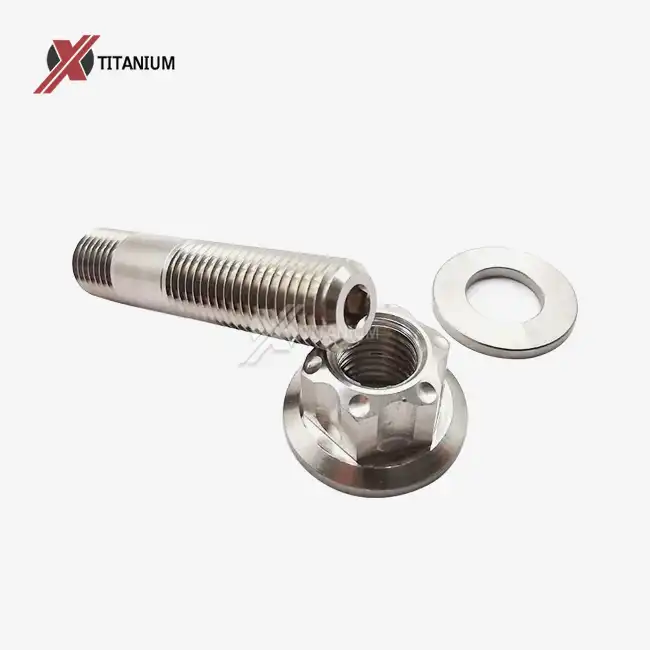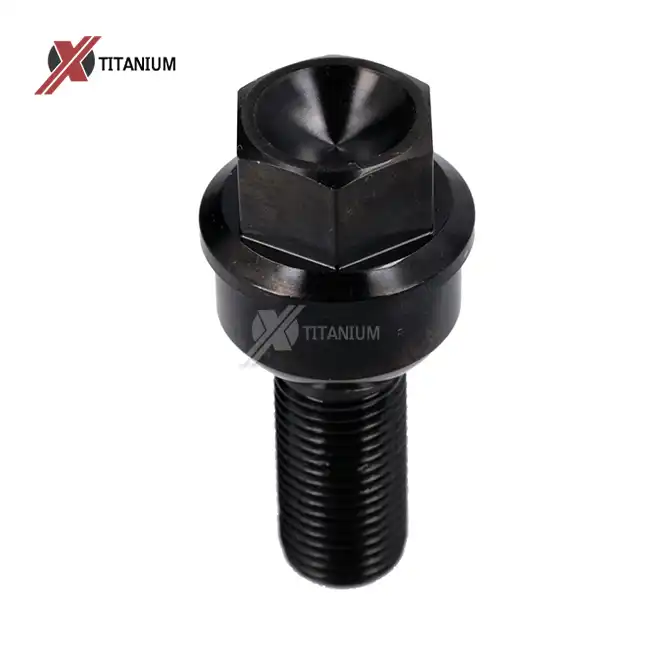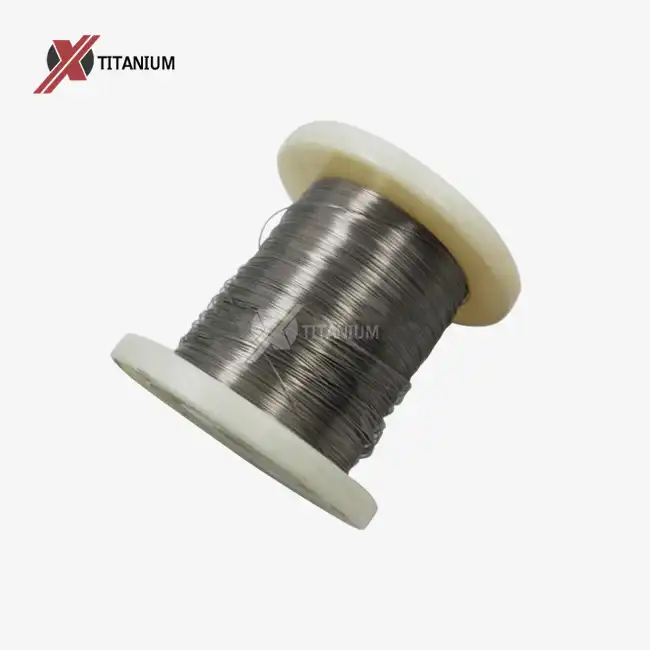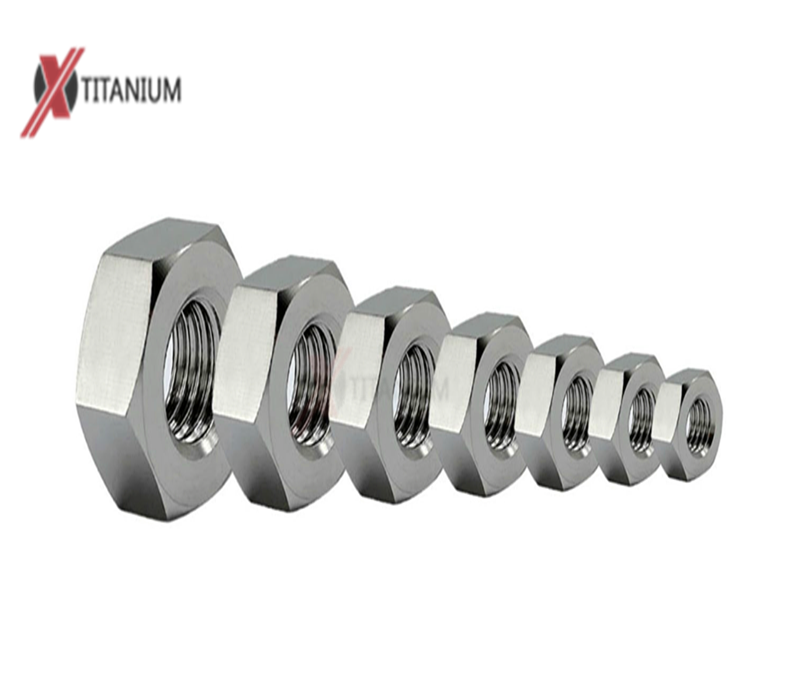The Science Behind Grade 2 Titanium's Corrosion Resistance
Formation of the Protective Oxide Layer
The corrosion resistance of grade 2 titanium plate in body fluids is primarily attributed to the formation of a stable, passive oxide layer on its surface. This layer, predominantly composed of titanium dioxide (TiO2), forms spontaneously when the metal is exposed to oxygen. The process, known as passivation, occurs rapidly and creates a barrier that is merely a few nanometers thick.
The oxide layer's formation is a result of titanium's high affinity for oxygen. When titanium atoms at the surface come into contact with oxygen molecules, they react to form a tightly bonded oxide film. This reaction happens almost instantaneously, creating a protective shield that prevents further oxidation of the underlying metal.
Stability and Self-Healing Properties
One of the remarkable features of the oxide layer on grade 2 titanium is its stability in various environments, including body fluids. The TiO2 layer is chemically inert and highly resistant to attack by most substances found in the human body. This stability is crucial for maintaining the integrity of titanium implants and medical devices over extended periods.
Moreover, the oxide layer exhibits self-healing properties. If the surface is scratched or damaged, exposing fresh titanium, the metal quickly reacts with oxygen in the surrounding environment to reform the protective oxide layer. This continuous regeneration process ensures that the corrosion resistance of grade 2 titanium plate remains intact, even under challenging conditions.
Electrochemical Behavior in Body Fluids
The electrochemical behavior of grade 2 titanium in body fluids further contributes to its corrosion resistance. When immersed in electrolyte solutions similar to body fluids, titanium exhibits a high electrochemical nobility. This means it has a low tendency to release ions into the surrounding medium, which is essential for preventing corrosion and maintaining biocompatibility.
The passive oxide layer also influences the electrochemical potential of the titanium surface, making it less susceptible to galvanic corrosion when in contact with other metals. This property is particularly valuable in medical applications where titanium components may be used in conjunction with other metallic materials.
Factors Influencing Corrosion Resistance in Body Fluids
Composition of Body Fluids
The composition of body fluids plays a significant role in the corrosion behavior of grade 2 titanium plate. Human body fluids contain various ions, proteins, and organic compounds that can interact with the titanium surface. Understanding these interactions is crucial for predicting and optimizing the performance of titanium implants.
Chloride ions, present in high concentrations in body fluids, are known to be aggressive towards many metals. However, the stable oxide layer on titanium provides excellent resistance to chloride-induced corrosion. Proteins in body fluids can adsorb onto the titanium surface, forming a biofilm that may further enhance corrosion resistance by acting as an additional barrier.
pH and Temperature Effects
The pH of body fluids can vary depending on the location within the body and physiological conditions. Grade 2 titanium exhibits remarkable stability across a wide pH range, from highly acidic to alkaline environments. This pH tolerance is attributed to the amphoteric nature of the titanium dioxide layer, which remains stable in both acidic and basic conditions.
Temperature also influences corrosion processes. The human body temperature of approximately 37°C (98.6°F) is generally favorable for maintaining the stability of the oxide layer on grade 2 titanium. However, localized temperature increases due to inflammation or other factors may affect corrosion kinetics and should be considered in specific applications.
Surface Characteristics and Processing
The surface characteristics of grade 2 titanium plate can significantly impact its corrosion resistance in body fluids. Factors such as surface roughness, porosity, and the presence of impurities can influence the formation and stability of the protective oxide layer. Careful control of surface properties through various processing techniques is essential for optimizing corrosion performance.
Surface treatments like anodization can be employed to enhance the thickness and quality of the oxide layer, further improving corrosion resistance. Additionally, techniques such as polishing or texturing can modify the surface topography, affecting how proteins and cells interact with the titanium surface in biological environments.
Applications and Advantages in Medical Implants
Orthopedic Implants
The exceptional corrosion resistance of grade 2 titanium plate in body fluids makes it an ideal material for orthopedic implants. These implants, which include hip and knee replacements, bone plates, and screws, are subjected to constant exposure to body fluids and mechanical stresses. The ability of titanium to maintain its integrity in these challenging conditions ensures the longevity and reliability of the implants.
The formation of a stable oxide layer not only protects the implant from corrosion but also promotes osseointegration - the direct structural and functional connection between living bone tissue and the implant surface. This integration is crucial for the long-term success of orthopedic implants, providing stability and reducing the risk of implant failure.
Dental Implants
In dentistry, grade 2 titanium is widely used for dental implants due to its excellent corrosion resistance in the oral environment. The mouth is particularly challenging, with fluctuating pH levels, temperature changes, and the presence of various bacteria. The stable oxide layer on titanium provides a robust defense against these corrosive factors, ensuring the durability of dental implants.
Moreover, the biocompatibility of titanium, enhanced by its corrosion-resistant properties, promotes the integration of the implant with surrounding bone and soft tissues. This integration is essential for the success of dental implants, allowing them to function effectively as artificial tooth roots.
Cardiovascular Devices
Grade 2 titanium plate finds applications in various cardiovascular devices, including heart valves, stents, and pacemaker components. In these applications, the material's corrosion resistance is paramount, as it must withstand constant exposure to blood and other body fluids without degradation.
The stability of the oxide layer on titanium in blood environments prevents the release of metal ions, which could otherwise lead to adverse reactions or device failure. Additionally, the smooth, inert surface created by the oxide layer helps to minimize the risk of blood clot formation, a critical factor in the design of cardiovascular implants.
Long-Term Biocompatibility
The corrosion resistance of grade 2 titanium in body fluids contributes significantly to its long-term biocompatibility. By preventing the release of metal ions and degradation products, titanium implants maintain their structural integrity and avoid potential toxic effects on surrounding tissues. This long-term stability is crucial for permanent implants, reducing the need for revision surgeries and improving patient outcomes.
Furthermore, the stable oxide layer provides a suitable interface for cell adhesion and tissue integration, promoting the formation of a natural seal between the implant and surrounding tissues. This integration helps to prevent bacterial colonization and reduces the risk of implant-associated infections, a significant concern in medical implantology.
Conclusion
Grade 2 titanium's corrosion resistance in body fluids is a result of its ability to form a stable, self-healing oxide layer. This protective film, primarily composed of titanium dioxide, acts as a barrier against corrosive elements in biological environments. The stability of this layer across various pH levels, temperatures, and in the presence of aggressive ions makes grade 2 titanium plate an exceptional material for medical implants and devices. Its corrosion resistance, combined with biocompatibility and mechanical properties, ensures long-term performance and safety in orthopedic, dental, and cardiovascular applications. As research continues, the understanding and optimization of titanium's corrosion behavior in body fluids will likely lead to further advancements in medical implant technology.
Are you in need of high-quality grade 2 titanium plate for your medical or industrial applications? Look no further than Baoji Chuanglian New Metal Material Co., Ltd. As a leading grade 2 titanium plate supplier, we offer superior products that meet the highest standards of corrosion resistance and biocompatibility. Our expertise in titanium processing ensures that you receive materials tailored to your specific needs. Contact us today at info@cltifastener.com or djy6580@aliyun.com to learn more about our grade 2 titanium plates and how they can enhance your projects.
FAQs
What surface finishes are available for grade 2 titanium plates?
We offer various surface finishes including bright, polished, pickled, acid cleaned, and sandblasted surfaces to meet different application requirements.
How do you ensure the quality of your grade 2 titanium plates?
We conduct rigorous quality tests including hardness tests, bending tests, and hydrostatic tests. Our products undergo 100% inspection and third-party testing to ensure compliance with industry standards.
What are the key features of grade 2 titanium plates?
Grade 2 titanium plates offer high corrosion resistance, low density, and good thermal stability, making them ideal for various applications in chemical, industrial, and sports sectors.
Can you customize the dimensions of grade 2 titanium plates?
Yes, we can provide custom sizes up to 1,500 mm in width and 3,000 mm in length to suit your specific project needs.
What makes grade 2 titanium suitable for medical implants?
Its excellent corrosion resistance in body fluids, biocompatibility, and high strength-to-weight ratio make grade 2 titanium ideal for medical implants and devices.
References
1. Liu, X., Chu, P. K., & Ding, C. (2004). Surface modification of titanium, titanium alloys, and related materials for biomedical applications. Materials Science and Engineering: R: Reports, 47(3-4), 49-121.
2. Hanawa, T. (2019). Titanium–tissue interface reaction and its control with surface treatment. Frontiers in Bioengineering and Biotechnology, 7, 170.
3. Geetha, M., Singh, A. K., Asokamani, R., & Gogia, A. K. (2009). Ti based biomaterials, the ultimate choice for orthopaedic implants–a review. Progress in Materials Science, 54(3), 397-425.
4. Souza, J. C., Henriques, M., Oliveira, R., Teughels, W., Celis, J. P., & Rocha, L. A. (2010). Do oral biofilms influence the wear and corrosion behavior of titanium?. Biofouling, 26(4), 471-478.
5. Ehrensberger, M. T., & Gilbert, J. L. (2010). The effect of static applied potential on the 24-hour impedance behavior of commercially pure titanium in simulated biological conditions. Journal of Biomedical Materials Research Part B: Applied Biomaterials, 93(1), 106-112.
